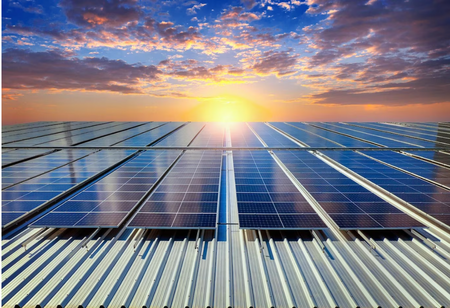By Consultants Review Team
 New Delhi: The center has warned solar power developers that they will face severe consequences if they are found to be breaking rules requiring domestic products for solar modules in government-funded projects.
New Delhi: The center has warned solar power developers that they will face severe consequences if they are found to be breaking rules requiring domestic products for solar modules in government-funded projects.
In an office memorandum, the ministry of new and renewable energy (MNRE) stated that it will file a criminal complaint under IPC 420, blacklist the developer for ten years, or even take disciplinary action against the involved PSU or government body. The government issued these domestic content requirement guidelines in 2018, outlining the penalty for noncompliance.
Domestic content requirements are trade restrictions that demand a certain percentage of a product's value to be obtained locally in order to boost domestic production and employment. It has been mandated to acquire solar photovoltaic cells and modules from domestic sources under certain of MNRE's current schemes, including CPSU Scheme Phase-II, PM-KUSUM, and grid-connected Rooftop Solar Programme Phase-II, where government subsidies are provided.
The notification stated, "Apprehensions have again been raised regarding supply of such solar PV modules under MNRE's schemes/programmes, which may not be fully compliant to the domestic content requirement (DCR) provisions prescribed under respective schemes/programmes of ministry of new & renewable energy."
"Accordingly, it is once again reiterated that domestic content requirement provision as mandated under the respective schemes/programmes of miistry of new & renewable energy should be strictly complied to and any violation of such DCR provision will invtie actions," it went on to say.
This is one of several actions taken by the government in recent years to limit cheaper imports and increase domestic manufacturing of solar modules and related items such as cells and wafers.
The government has created a two-tiered production-linked incentive (PLI) plan for modules, cells, and related items. The government declared in March of this year that it has allotted 39.6 GW of domestic solar PV module production capacity to 11 companies, with a total outlay of 14,007 crores under the PLI plan for high efficiency solar PV modules (Tranche-II).
India's solar module manufacturing capacity stood at 38 GW at the end of the previous fiscal year, and the government aims to build 48 GW of manufacturing capacity over the next three years.
In November-December 2022, a total integrated capacity of 8.73 MW was allotted under the scheme's tranche-I. Taking the two tranches together, the total domestic solar PV module manufacturing capacity awarded under the PLI Scheme is 48.33 MW, with the government providing a total support of more than 18,500 crore, according to an official statement issued in September.
The center has also announced the imposition of a 40% basic customs charge on imports of modules and a 25% duty on imports of cells, with effect from April last year, in order to discourage imports and increase demand for domestic products.
However, due to a lack of domestic supply, reliance on imported modules and cells remains. In March, the government exempted ongoing solar projects from the legal need of obtaining photovoltaic modules from the Approved List of Models and Manufacturers (ALMM) due to a supply constraint.
Projects that are completed by March 31, 2024 will be excluded from the ALMM module procurement requirement. The ALMM requirement was adopted in 2021 as a non-tariff barrier to support domestic manufacturing by authorizing the list of indigenous models and manufacturers that might participate in government-bidding solar development projects.
India's solar cell and module imports increased by 55.1% to $926.6 million in the April-June quarter of FY24. As India seeks to reach 292 GW of cumulative installed solar power capacity by 2030, demand for modules and cells will rise. The current installed capacity is 67 GW, with another 96 GW under construction or bid out.
We use cookies to ensure you get the best experience on our website. Read more...